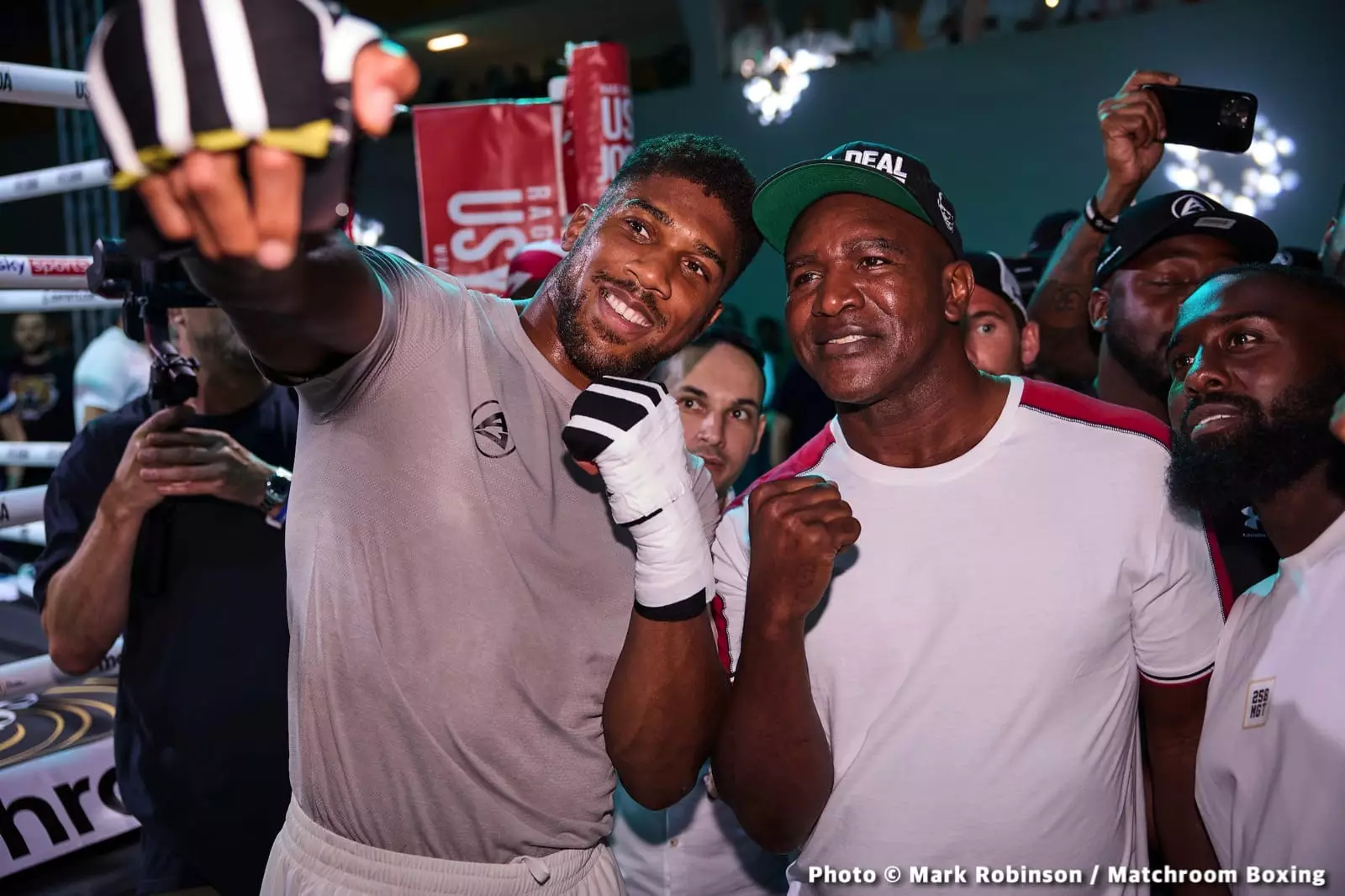Evander Holyfield, a name that resonates deeply within the boxing community, recently engaged in a spirited dialogue apieac with Radio Rahim during the Ring Magazine Awards in London. This conversation has reignited debates about one of the most enduring questions in sports: What defines the “greatest” boxer of all time? Holyfield, who relishes the unique claim of being the only four-time heavyweight champion, argued for his rightful place within boxing history, positioning himself firmly against the esteemed Muhammad Ali.
Holyfield’s assertion that he should be considered the greatest heavyweight of all time is rooted in his impressive record as a four-time champion—a feat unmatched in the history of the sport. Throughout his career, which saw four separate reigns as the heavyweight champion, Holyfield faced and defeated some of boxing’s greatest titans. His victories over colossal opponents like Buster Douglas, Riddick Bowe, and George Foreman illustrate not only his courage but also his skill in the ring. This perspective highlights a crucial aspect of Holyfield’s legacy: the ability to consistently rise to the occasion, defying odds that many believed were insurmountable.
However, Holyfield’s critique of the media’s emphasis on Ali’s historical significance raises an interesting point regarding recognition and legacy. He expressed his frustration at being overshadowed despite having achieved a record that he believes should warrant greater acknowledgment. As fans and analysts, we should consider how history sometimes selectively remembers boxers, shaping narratives that may overlook significant accomplishments, such as Holyfield’s multiple championship reigns.
While Holyfield’s achievements are groundbreaking, one must also analyze the broader context of his career in juxtaposition with that of Muhammad Ali. Ali is often celebrated not just for his title count but for the caliber of competition he faced, as well as the impact he made both within and outside the boxing ring. The single-recognized world heavyweight title during much of Ali’s career provided him with a unique platform that Holyfield did not have when multiple championship belts diluted the landscape.
The value of the opponent is undeniable; it is essential to weigh not just how many belts one holds but the quality of the fighters they overcame. Holyfield’s battle with John Ruiz, for instance, while it garnered him another title, raises questions: Did defeating Ruiz significantly elevate Holyfield’s legacy, or is it the marquee matchups against other legends that define greatness? Though successful in acquiring titles from different organizations, Holyfield’s reigns sometimes included competition that might not resonate as strongly in the pantheon of heavyweight boxing.
The debate surrounding the greatest of all time is inherently subjective and often driven by personal biases and the values one places on different accomplishments. If we were to pivot our discussions to consider fighters like Floyd Mayweather or Canelo Alvarez, who have amassed numerous world championships, the criteria for greatness would evolve further. Yet, it must be remembered that boxing is not solely about statistics. It is about character, fortitude, and the narratives interwoven within the sport’s rich history.
The fact that Ali faced his contemporaries in what many consider to be one of the most competitive eras of heavyweight boxing—often against a collective of formidable opponents—gives him a compelling edge in this discussion. Whereas, Holyfield rose to prominence during a time fragmented by the emergence of various titles and sanctioning bodies. This difference plays a significant role in how each athlete’s legacy is currently perceived.
It is undoubtedly refreshing to see Evander Holyfield exhibit pride in his achievements and push back against a narrative that predominantly features other legends. The sports world thrives on debates surrounding greatness, and Holyfield’s contributions deserve recognition while being critically appraised alongside those of other boxing icons. His poignant remarks have reignited discussions about not just who should be crowned the greatest fighter of all time but also the larger implications of legacy, recognition, and the nuances inherent in evaluating the careers of these extraordinary athletes. In the end, what remains clear is that each champion’s story is significant, adding depth to the rich tapestry that is the history of boxing.

